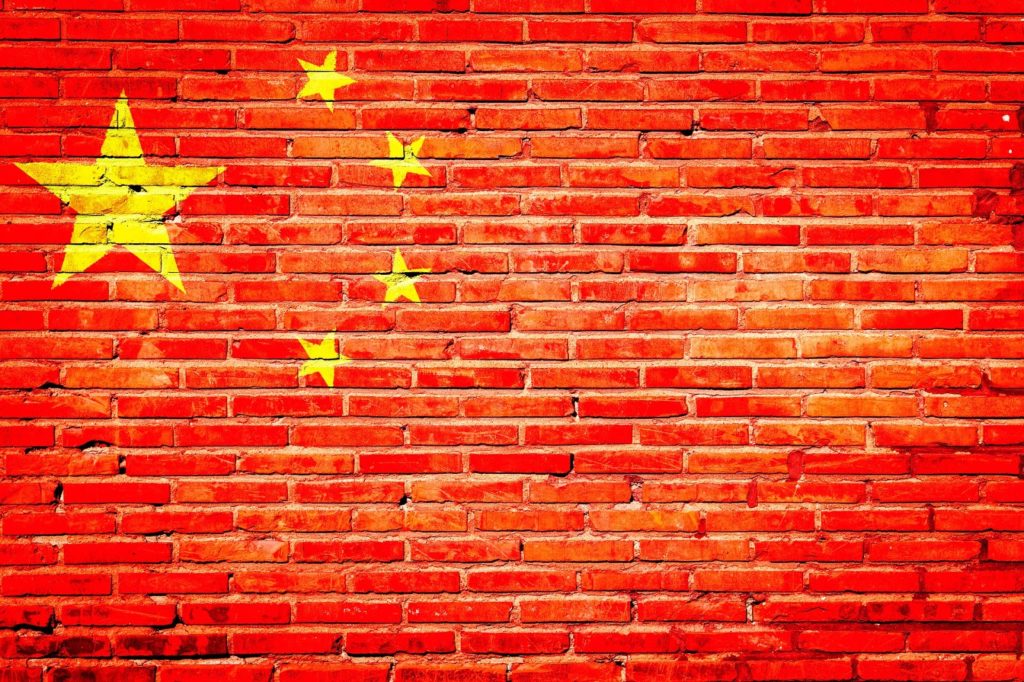This month, China slapped a $2.8 billion (¥18 billion) fine on Alibaba for violating antitrust laws.
Earlier, the Chinese government had abruptly suspended the $37 billion IPO of Alibaba’s digital finance arm, Ant Group, after Jack Ma had a go at the Chinese regulatory system in October 2020.
Inarguably, the rapid growth of the Chinese technology firms in the last decade owes a lot to Beijing’s favourable regulations and helpful policies. However, lately, the Chinese government has shown intent to tighten the regulatory screws on Big Tech firms.
In this article, we analyse the implications of a shift in Beijing’s approach to dealing with Big Tech and how it would push back China’s efforts to achieve AI supremacy.
A symbiotic growth
The US didn’t consider China a credible technology threat up until the beginning of the last decade. The Valley missed the revolution brewing in the dragon country after Beijing woke up to its potential and started rolling out mass entrepreneurship drives to leverage the gold mine of data it was sitting on.
China forged strategic relationships with Big Tech to accelerate its economic, political, and social goals. Unlike the West, the Chinese government was a lot lenient towards tech companies.
“Putting all these pieces together – the dual transition into the age of implementation and the age of data, China’s world-class entrepreneurs, and proactive government – I believe that soon China will match or even overtake the United States in developing and deploying AI“
Kai-Fu Lee, Author, AI Superpowers
In 2017, the government came up with a national AI policy to build a domestic AI industry worth nearly $150 billion in the next few years and to become the leading AI power by 2030. The government pledged to pour a lot of resources into AI companies. The local governments responded to the AI call and offered subsidies, and set up supportive policies to lure AI talent, entrepreneurs, and startups to their regions. China benefitted immensely from this cut-throat competition among provinces.
The Chinese government also eliminated the competition from outside by banning certain platforms from the US; in return, the whip-smart Chinese entrepreneurs built their versions of Google, Twitter and Groupon etc, only better.
“It would be a brave Chinese prosecutor or judge who sides with a big Western company over a local upstart in any case of alleged IP theft.”
Tim Culpan, Technology Columnist at Bloomberg
Apart from the obvious economic advantages, the Chinese government used various Big Tech applications to perpetuate its agendas, both domestically and internationally.
On the back of its technological advances, China started brokering deals with other countries to further its geopolitical ambitions. The US and its allies were frustrated and responded with sanctions on China. The US-China trade standoff and the arrest of Huawei’s CFO could all be tied to the US’ increasing discomfort with China’s incredible growth.
China has become a force to reckon with in a short time, so much so that Western countries cannot afford to ignore it. Case in point, the recent trial runs for 5G implementation carried out by Nokia (Finnish company) and China Mobile Communications Corporation (state-owned company). Though Finland is not a part of the D10 (an alliance of ten democracies with an aim to create alternate suppliers of 5G equipment and related technologies), this collaboration brought an entirely new dynamic to the D10 vs China equation.
According to news reports, Beijing’s spy agencies use Chinese companies’ data processing capabilities for espionage purposes. Chinese intelligence agencies also use these data-processing functions for commercial applications.
China also leverages AI developed by private companies for mass surveillance. The government authorities have embedded cybersecurity police units in major internet companies. Numerous users of WeChat, owned by Tencent, have been jailed for criticising the government. Recently, The Washington Post reported that Huawei tested an AI-based facial recognition system to identify Uighur Muslims, a persecuted minority group in China.
Will China lose its momentum?
While the Chinese Big Tech has enjoyed a great relationship with the government over the last decade, this relationship has become increasingly tense over the last year and a half. After Alibaba, the government plans to go after Tencent, according to Quartz. Hence, the question remains whether such a strained relationship will put the Tech Giants and the Chinese government at a disadvantage in its race to AI supremacy.
While the fine imposed on Alibaba makes up only 4% of its 2019 domestic revenues, the company still issued a statement thanking the regulators for their ‘sound government regulation’ and ‘critical oversight’. This is almost unheard of in the West when tech companies get fined. The suspension of Ant’s IPO is a warning shot to the Big Tech, and the public statement of Alibaba shows who is actually in control in China.
According to experts, China’s growth is mainly attributed to its techno-utilitarian approach towards proactive adoption and investment in AI and emerging technologies. So, suppose China changes its approach and continues with its Big Tech investigations and impositions. In that case, the country might lose its momentum and the economic and geopolitical gains made over the past few years.
n (state-owned company). Even though Finland is not a part of the D10 (an alliance of ten democracies with an aim to create alternate suppliers of 5G equipment and other technologies), this collaboration brought a completely new dynamic to the Democracies vs China equation.
“Looking at this situation as a democracy vs authoritarianism or a The West vs China debate. For smaller countries (like Finland) it is not that simple to completely ban tech collaborations with China. Apart from their values, they have to also consider what is strategically beneficial for them.”
Arindrajit Basu, Research Lead at Centre for Internet and Society
Secondly, according to news reports, Beijing’s spy agencies use Chinese companies’ data processing capabilities to identify pieces of intelligent information that are valuable for national security. Chinese intelligence agencies also use these data-processing functions for commercial applications as they do not have the economic capability to build them in-house.
China also leverages AI developed by private companies for mass surveillance. Authorities directly embed cybersecurity police units in major internet companies. Numerous users of WeChat, which is owned by Tencent, have gone to prison for criticising the government. Recently, The Washington Post also reported that Huawei tested an AI-based facial recognition system to identify Uighur Muslims, a minority group that China has been accused of detaining according to several human rights groups.
Will China Lose Its Momentum
While the Chinese Big Tech has enjoyed a great relationship with the government over the last decade, this relationship has become increasingly tense over the last year and half. After Alibaba, the government plans to go after Tencent, according to Quartz. Hence, the question remains whether such a strained relationship will put the Tech Giants and the Chinese government at a disadvantage in its race to AI or tech supremacy.
While the fine imposed on Alibaba makes up only 4% of its 2019 domestic revenues, the company still issued a statement thanking the regulators for their ‘sound government regulation’ and ‘critical oversight’. This is very rare and almost unheard of in the West when tech companies in the US get fined. The suspension of Ant’s IPO is a warning to Big Tech and the released statement after Alibaba’s fine is an indication that these Tech Giants cannot fight back against the government.
However, according to experts, China’s growth is mainly attributed to its techno-utilitarian approach towards proactive adoption and investment in AI and other emerging technologies. This has an impact on accelerated deployment, generating more data, which plants the seeds for further growth. Considering these factors, if China changes its approach and continues with its Big Tech investigations and impositions, the country might lose its momentum and the economic and geopolitical gains it has made over the past few years.






















